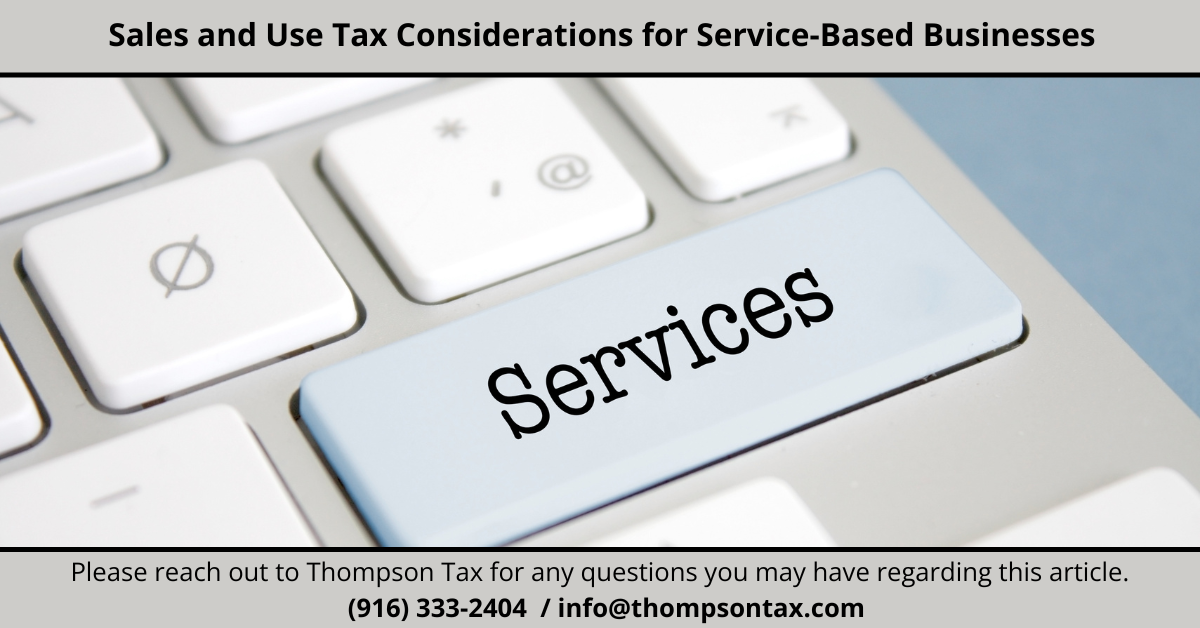
When it comes to sales and use tax, service-based businesses often grapple with a myriad of unique considerations that set them apart from product-based businesses. The intricacies of sales and use tax for service-based businesses are not to be underestimated, as they play a pivotal role in compliance and financial planning. Below are some key points that underscore the complexity service-based businesses face when it comes to sales and use tax.
Sales and Use Tax Complexities Service-Based Businesses Face
1. Nexus
Service-based businesses need to be aware of the concept of nexus, which refers to a business’s connection to a state that requires it to collect and remit sales tax. Nexus for service-based businesses can be established through various means, such as having employees or property in a state or reaching a certain level of economic activity within the state.
2. Taxability of Services
Unlike tangible goods, services are often treated differently when it comes to sales and use tax. Some states tax services, while others do not. Service-based businesses need to be aware of the taxability of their specific services in each state where they operate.
3. Exemptions
Like product-based businesses, service-based businesses may be eligible for certain sales and use tax exemptions. For example, some states offer exemptions for specific types of services, such as healthcare or education-related services. Service-based businesses must understand the exemptions available to them and ensure they are correctly applied. It is also imperative to keep the proper documentation on hand for audit purposes.
4. Bundled Services
Service-based businesses that offer bundled services or packages must carefully consider the tax implications of bundling different services together. In some cases, the taxability of a bundled service may differ from the taxability of an individual service when offered separately.
5. Sourcing Rules
Service-based businesses operating in multiple states need to understand the sourcing rules for services, which determine the state where the service is considered to be provided for sales tax purposes. Sourcing rules can vary by state and may be based on factors such as where the service is received or where the benefit of the service is realized.
Non-compliance with sales and use tax regulations can pose significant risks for service-based businesses. The unique compliance challenges they face, such as tracking the taxability of diverse services across multiple states and determining the appropriate tax rates and rules for each service, underscore the importance of staying on top of these obligations.
Navigate the Challenges with Thompson Tax
Service-based businesses can navigate these complexities with confidence if they have a comprehensive understanding of the sales and use tax implications specific to their industry. By staying informed about the taxability of services, exemptions, and compliance requirements across different states, they can avoid potential penalties and ensure financial stability. Seeking professional guidance from tax experts can be a game-changer in this regard.
Contact Thompson Tax today. We are your Trusted Tax Advisor and are ready to assist with all your sales and use tax needs.